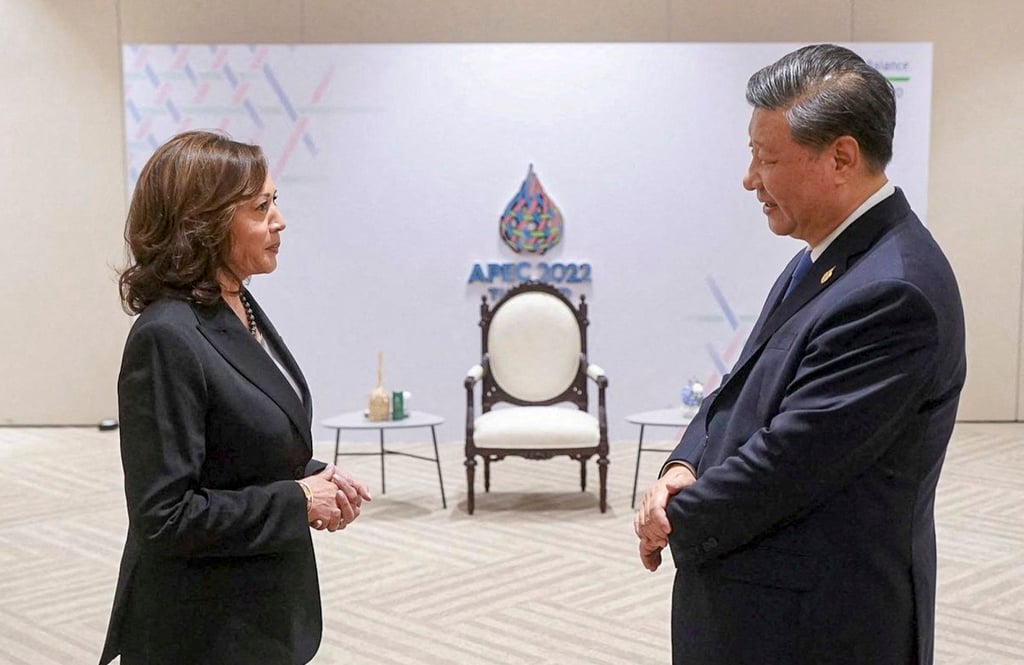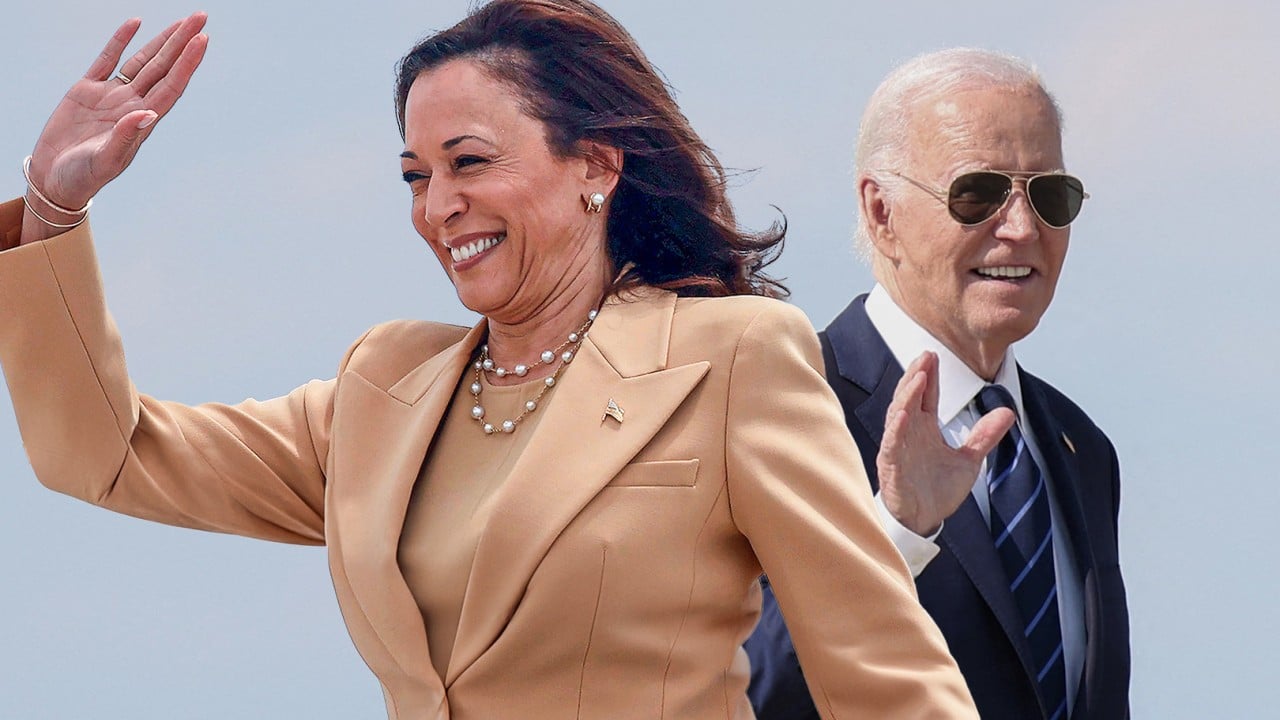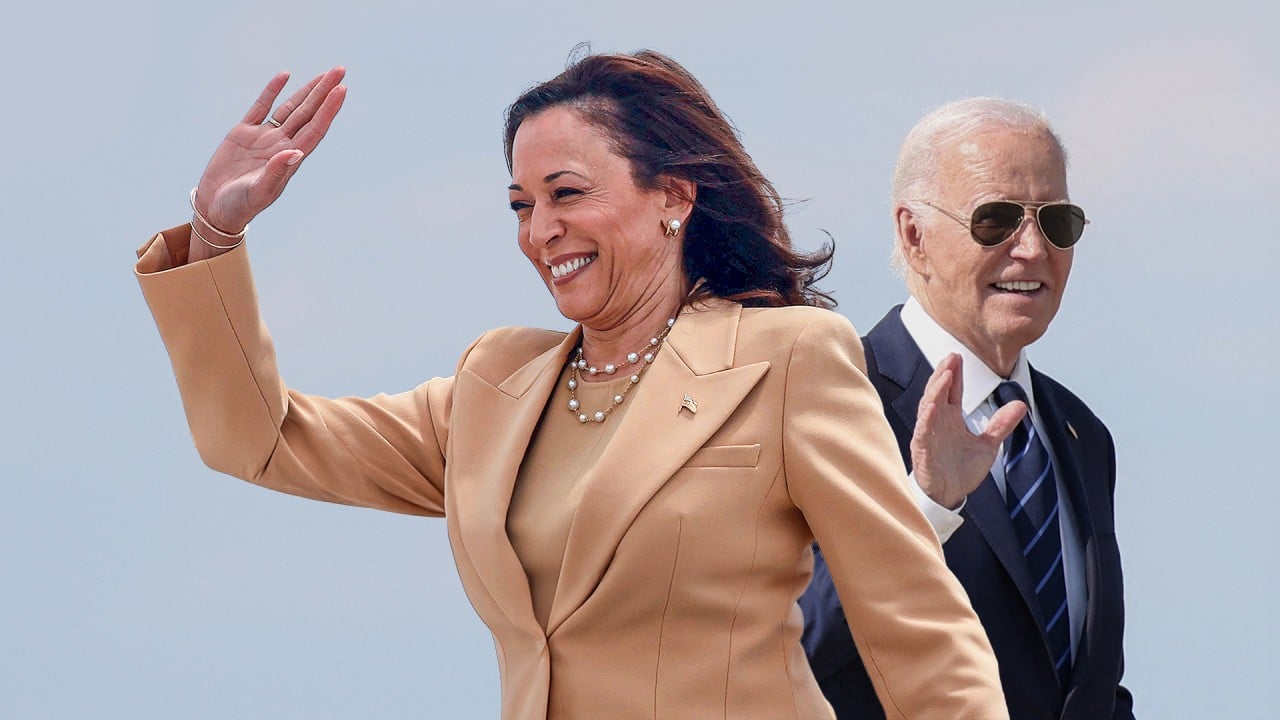After US President Joe Biden’s blockbuster announcement that he would not seek re-election, his party scrambled on Monday to consolidate behind his likely successor as nominee, his political opponents to retool their attacks and the rest of the world to reassess the impact on global policy.
The US political earthquake was set off Sunday when Biden, 81, bowed to weeks of mounting pressure over his age and fitness and announced his decision on social media, first to withdraw from the race and then to endorse Vice-President Kamala Harris as his successor.
Democratic Party relief and a wave of financial support followed as the party reported US$46.7 million in fundraising within hours.
While Harris is favoured to secure the nomination and the party seeks to unify quickly given the short window until the November election, she faces rivals in the wings even as Democrats seek to avoid the appearance of a coronation.
“I am honoured to have the president’s endorsement and my intention is to earn and win this nomination,” Harris said. “I will do everything in my power to unite the Democratic Party – and unite our nation.”
The Republican challenger, former president Donald Trump, quickly pivoted on Sunday with a statement tying Harris to Biden administration policies. But his campaign has seen its world change as Trump, 78, suddenly becomes the candidate whose age is a concern.
The immediate challenge for Democrats will be the succession process, including how to transfer funding, organisational structure and thousands of delegates earmarked for Biden over to Harris or another candidate.
Speaking at her first public event since the news broke, Harris on Monday did not mention her candidacy but praised Biden at a White House celebration for student athletes for his honesty, integrity and “deep love for our country”.
No sitting US president has dropped out of a race this late in the election cycle. This is also the first time in decades a president might be decided at a convention – Democrats gather in Chicago on August 19 – a largely uncharted process that could get messy if heated competition breaks out.
To secure the nomination, Harris would need to overcome her reputation as a loyal if unexceptional vice-president and move quickly and forcefully to distinguish herself from Democratic rivals.
But virtually all her most likely potential challengers, including Governor Gavin Newsom of California, Governor Gretchen Whitmer of Michigan and Andy Beshear of Kentucky, had lined up behind her by Monday, as had former House speaker and Democratic heavyweight Nancy Pelosi.
At 59 years old, and a woman of African and Asian descent, Harris could focus a spotlight on Trump’s own age and on issues of abortion and diversity, among other policies.
Last week, at the Republican National Convention, Trump’s vitriolic and meandering 90-minute nomination acceptance speech quickly undercut his calls for national unity even as his vice-presidential pick, hardline Senator J.D. Vance of Ohio, lacks appeal among moderate voters.
But Harris is also vulnerable on immigration and the US southern border, part of her portfolio as vice-president – as well as Biden’s Israel-Gaza war legacy and her liberal reputation.
When she was California attorney general, Harris approved a controversial law that made stolen items valued at less than US$950 non-indictable offences.
She also came to the vice presidency without foreign experience.
But she has since met Chinese President Xi Jinping, Premier Li Qiang and other Asian leaders and treaty allies while attending the Asia Pacific Economic Cooperation, Association of Southeast Asian Nations and other regional and global events in recent years.

Her heritage as the daughter of Indian and Jamaican parents also could earn her points in developing countries, some noted.
“She is far more qualified than any other candidates to take on China issues,” said Jeffrey Moon, head of consultancy China Moon Strategies and a former National Security Council official.
“Based on her personal background and travels, she could be more effective than Biden in trying to challenge China’s leadership in the Global South.”
“She’s certainly much more sophisticated on the issues than Trump is,” he added.
Most analysts expect that, if Harris becomes president, she would essentially hold fast to Biden’s foreign policies, at least initially.
“From her time in the Senate and as vice-president, it is fair to say she will follow a very similar approach to Biden,” said Brett Bruen, president of the Global Situation Room crisis communication firm.
“The tough talk and action toward China will continue,” added Bruen, a former White House head of global engagement. “She may even ratchet it up a few notches in an attempt to win over more Midwestern voters.”
Harris is seen as tough on issues such as human rights in Hong Kong and Xinjiang, as well as Washington’s Indo-Pacific strategy, support for Taiwan and US efforts to counter China’s military activities in the disputed South China Sea.
Biden’s personally wrenching decision to step down followed his disastrous debate performance against Trump on June 27 in which he mumbled, seemed to lose focus and appeared confused.
Biden sought aggressively to rewrite the narrative. But party pressure to drop his candidacy grew ever louder as political columnists, Congressional Democrats, donors, down ballot candidates and pollsters underscored the growing possibility of an electoral loss to Trump.
The situation on Monday was fast-moving, but political experts saw two ways the selection process might go. Democrats could quickly rally around Harris during a perceived time of crisis, given that she is well known, already vetted and can easily assume control of the Biden-Harris campaign machinery.
Alternatively, Democrats could open up the process, allowing other candidates to compete in nationwide party-organised forums for party delegates who ultimately decide the nominee.
Former president Barack Obama notably stopped short of endorsing Harris, possibly supportive of a more open process.
Harris has also faced questions about her organisational ability following a reported staff exodus from her office in 2021.

Analysts surmised that US Secretary of State Antony Blinken, a Biden loyalist, might depart in a Harris administration. But Deputy State Secretary Kurt Campbell, a long-time Asia-Pacific hand, and National Security Adviser Jake Sullivan, could remain, giving the next Democratic administration some continuity.
While Harris and any Democratic rivals have their work cut out for them, Republicans face their own challenges, having locked in early much of their campaign strategy against Biden as the candidate.
A few Republicans even criticised Democrats Sunday for switching candidates on them.
“Trump is in a tough spot. His convention did not reach out to a lot of new voters,” said Bruen.
“So he does not seem to have much room or opportunity to expand his base of support, even as Harris is likely to attract more voters from the middle than were done with Biden.”



